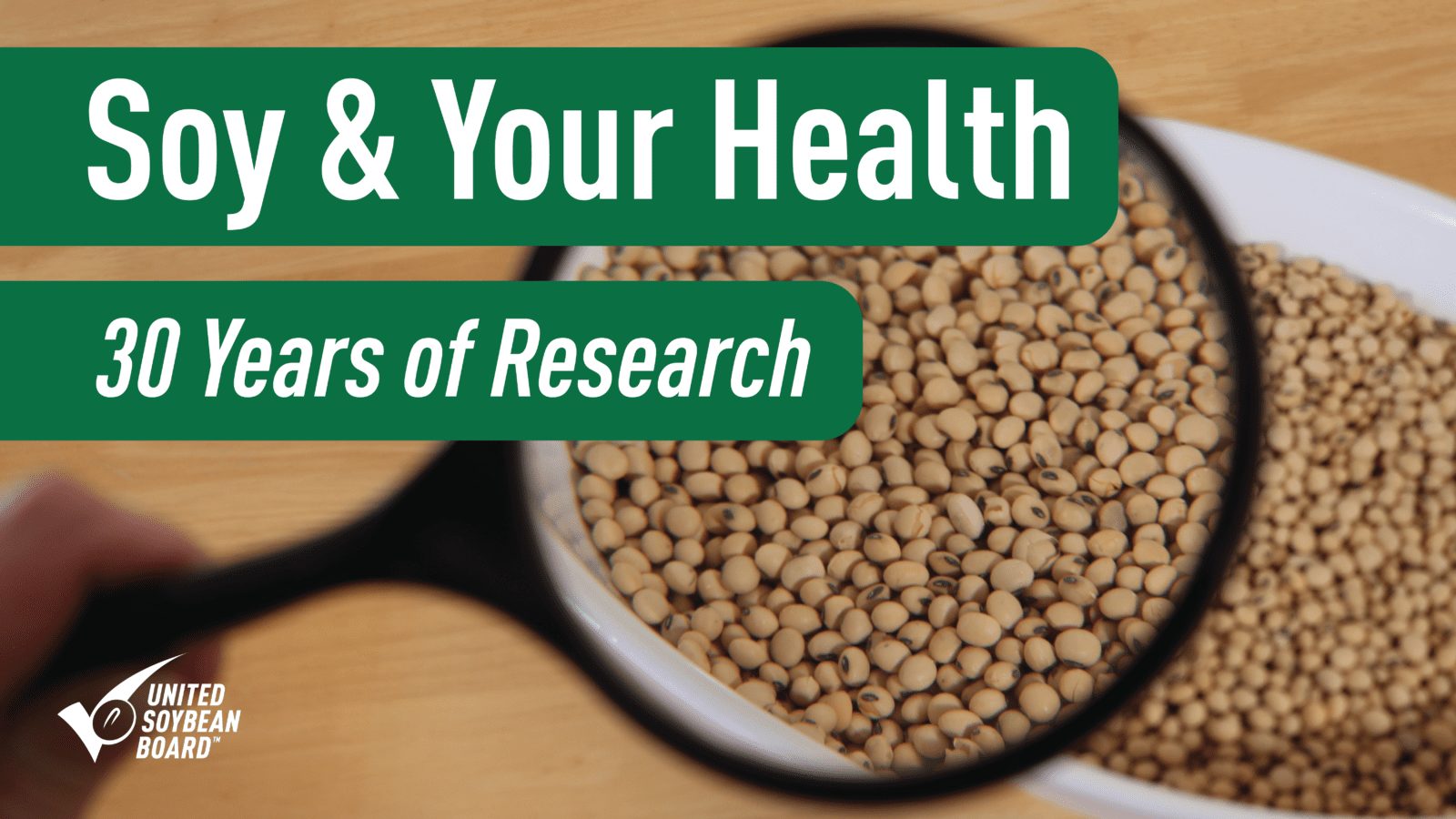 The health effects of soyfoods have been rigorously investigated for 30 years. From a research perspective, the soy and health relationship is a rather mature field. However, we are continually gaining new insight into the health impact of soy. For example, a large study published in 2022 involving nearly 100,000 middle-aged Chinese men and women found eating modest amounts of soyfoods – about one serving per day – was associated with lower risk of death and a decreased risk of total cardiovascular events, like stroke and heart attack. [1]
The health effects of soyfoods have been rigorously investigated for 30 years. From a research perspective, the soy and health relationship is a rather mature field. However, we are continually gaining new insight into the health impact of soy. For example, a large study published in 2022 involving nearly 100,000 middle-aged Chinese men and women found eating modest amounts of soyfoods – about one serving per day – was associated with lower risk of death and a decreased risk of total cardiovascular events, like stroke and heart attack. [1]
Another study published late last in 2021 involving older US men and women found that consuming soynuts (roasted soybeans) daily for 16 weeks increased blood flow in the brain in four different areas, which suggests soy might improve cognitive function. [2]
 One of the more exciting areas currently being researched is the effect isoflavones found in soy on skin health. This area has been researched for about a decade with quite promising results. [3], [4] The current study underway in California that is funded by the United Soybean Board (USB) and Soy Nutrition Institute (SNI) Global has the potential to make that promise into something quite concrete. From a public health perspective, reducing wrinkles may not be high on the priority list, but many people care about the condition and appearance of their skin. Even if some may choose to eat soy primarily to improve their skin, they will also reap the other health benefits soyfoods may provide.
One of the more exciting areas currently being researched is the effect isoflavones found in soy on skin health. This area has been researched for about a decade with quite promising results. [3], [4] The current study underway in California that is funded by the United Soybean Board (USB) and Soy Nutrition Institute (SNI) Global has the potential to make that promise into something quite concrete. From a public health perspective, reducing wrinkles may not be high on the priority list, but many people care about the condition and appearance of their skin. Even if some may choose to eat soy primarily to improve their skin, they will also reap the other health benefits soyfoods may provide.
USB and SNI Global are funding another study that is examining the effect of soybean oil on body fat. Preliminary evidence shows that oils high in polyunsaturated fat, such as soybean oil, cause less fat accumulation in the liver and other organs in comparison to oils high in saturated fat. [5] Reducing liver fat reduces risk of liver disease and its severe health consequences.
Whether you choose soy for a specific health benefit or just like the taste, it is important to know that soy is an excellent source of protein. With the growing global population, the world needs efficiently and sustainably produced protein sources. U.S. Soy fits the bill.
- Xue T, Wen J, Wan Q, Qin G, Yan L, Wang G, Qin Y, Luo Z, Tang X, Huo Y, et al. Association of soy food with cardiovascular outcomes and all-cause mortality in a Chinese population: a nationwide prospective cohort study. Eur J Nutr 2022.
- Kleinloog JPD, Tischmann L, Mensink RP, Adam TC, Joris PJ. Longer-term soy nut consumption improves cerebral blood flow and psychomotor speed: results of a randomized, controlled crossover trial in older men and women. Am J Clin Nutr 2021.
- Draelos ZD, Blair R, Tabor A. Oral soy supplementation and dermatology. Cosmetic Dermatology 2007;20:202-4.
- Jenkins G, Wainwright LJ, Holland R, Barrett KE, Casey J. Wrinkle reduction in post-menopausal women consuming a novel oral supplement: a double-blind placebo-controlled randomized study. Int J Cosmet Sci 2014;36:22-31.
- Rosqvist F, Iggman D, Kullberg J, Cedernaes J, Johansson HE, Larsson A, Johansson L, Ahlstrom H, Arner P, Dahlman I, et al. Overfeeding polyunsaturated and saturated fat causes distinct effects on liver and visceral fat accumulation in humans. Diabetes 2014;63:2356-68.
